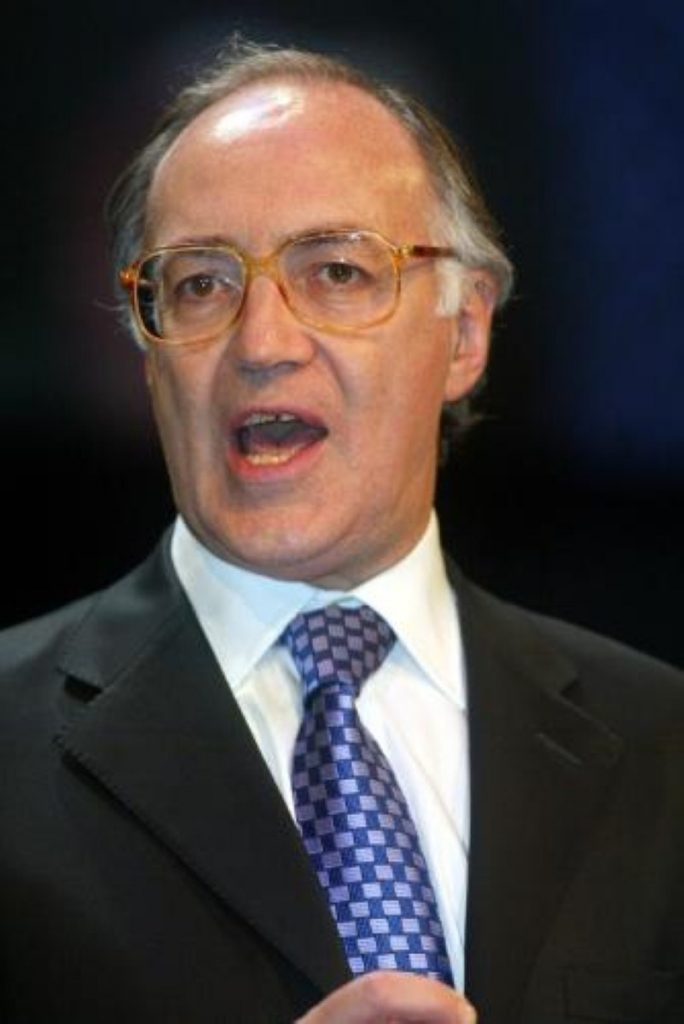Howard attacks EU Constitution
Conservative Party leader Michael Howard today warned that the EU Constitution would be “a giant ball and chain round the ankle of British business”.
In a speech at Goldman Sachs in London, he said that a new approach must be adopted towards Europe to ensure Britain could thrive in today’s competitive environment.
Mr Howard used the speech to flesh out some of his objections to the EU Constitution – which will be signed by heads of state tomorrow. The treaty will have to be ratified in all 25 member states before it comes into being.
Tony Blair has promised that he would grant a referendum on the subject in the UK, with the Conservatives planning to campaign strongly for a no vote.


Mr Howard said: “If the UK is to fulfil our potential in this new world, we must remain internationally competitive.”
He said that it was futile to try to resist economic changes and in order to compete Britain needed low taxes, light touch regulation, controlled government spending and first class standards in education.
The Conservative Party leader criticised the Government’s record, arguing that the Government’s “desire to control, to manage and to regulate” was at the root of the problems the economy faced. As such, he outlined the Conservative Party’s timetable for action that would tackle the problems of high taxation and the burden of regulation.
But he argued that efforts to increase competitiveness in Britain would be “pointless unless we tackle the problems at the heart of the European Union.”
Mr Howard claimed: “The EU was designed to liberate our markets. Instead it has burdened them with extra costs and regulations, undermining their ability to compete.”
He added: “Yet far from addressing these problems, the European Constitution will compound them. It will be a giant ball and chain round the ankle of British business.”
The Conservative Party leader cited the Charter of Fundamental Rights as a source of potential future problems. Pointing to its support for “the right to form trade unions”; the “right of collective bargaining and action”; and the “freedom to choose an occupation and right to engage in work”, amongst other elements, he said: “No-one knows how these rights will be interpreted. But the omens aren’t good.”
Mr Howard stated: “It’s not a question of in or out – it’s a question of change or decline. We have to adopt a new approach to the European Union if we are to thrive and survive in today’s global markets.
“Countries which want to pursue ‘ever closer union’ should be free to do so. But they must accept that others regard this path as a road to nowhere – not the fast lane they perceive it to be.”
He argued that Britain had reached a time when Conservative ideas were “more relevant” to the challenges it faced.
Against a backdrop of “a fiercely competitive global economy”, he said: “We need to take action to set British business free to do what it does best – win orders, create jobs, raise living standards. And that’s what the Conservatives will deliver.”
Mr Howard’s speech follows on from a spat in the Commons on the issue during Wednesday’s Prime Minister’s Question Time. Then Mr Blair rejected criticisms of the Constitution, arguing that it will modernise the EU’s institutions – something essential in a 25 member state – and would protect the UK’s right to set its own taxes, foreign policy as well as retaining the opt-in on asylum.
He described it as a “sensible deal for this country”, insisting that millions of British jobs depend on being in the EU, and claimed that the Conservatives want to use the treaty as a basis on which to renegotiate membership of the EU – adding “and that means getting out of Europe”.
Turning his fire on the Conservative leader, Mr Blair said: “It’s gutless to run from UKIP” adding “a true leader would stand up to UKIP not run from them”.












